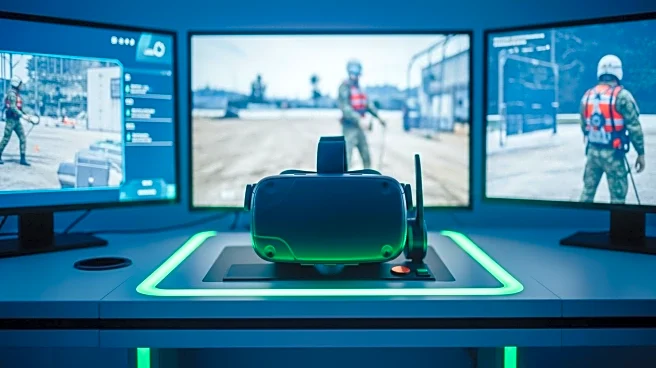What's Happening?
Researchers from the United Kingdom and Australia have published a commentary suggesting that video games could be beneficial in training for high-stress roles such as military and emergency responders. The study, led by Benjamin Sharpe from the Human Attention Laboratory at the University of Chichester, highlights the potential of video games to enhance cognitive performance, which in turn can improve physical performance. The commentary reviews various studies that demonstrate the bidirectional relationship between physical fitness and cognitive function, suggesting that video games could be integrated into training programs to develop specific skills necessary for military operations.
Why It's Important?
The integration of video games into military training could revolutionize how service members are prepared for real-world scenarios. By enhancing cognitive skills through gaming, military personnel may improve their decision-making, reaction times, and strategic planning abilities. This approach could lead to more effective training methods, potentially reducing the time and resources required for traditional training. Additionally, the use of video games could attract younger recruits who are already familiar with gaming, thereby broadening the pool of potential candidates for military and emergency responder roles.
What's Next?
The commentary suggests further research into the specific skills developed through different video game genres and their applicability in military settings. This could lead to the development of tailored training programs that incorporate video games to enhance specific cognitive and physical skills. Military organizations may begin experimenting with commercial video games as training tools, potentially collaborating with video game companies to create specialized training simulations.
Beyond the Headlines
The use of video games in military training raises ethical and cultural questions about the gamification of warfare and emergency response. While video games can simulate high-stress environments, the real-world consequences of military operations are far more severe. This approach may also shift cultural perceptions of military training, making it more accessible and engaging for younger generations.









